As a digital marketer, I've often wished for an easy, free way to monitor my backlinks effectively. It wasn't until I stumbled upon a unique Google Sheets setup that I realized I could customize this tool to track my backlinks without breaking the bank. Today, I'm excited to share my journey and a step-by-step guide on how to use this free backlink monitoring tool with you all!
TL;DR: Learn how to track your backlinks using a completely free Google Sheets tool! Follow these simple steps to boost your SEO strategy without spending a dime.
Backlinks, or links from other websites to yours, play a critical role in SEO. They are like votes of confidence. Each backlink signals to search engines that your content is trustworthy. More importantly, higher-quality backlinks can significantly boost your site's visibility. It’s vital - no doubt about it!
In the digital marketing realm, backlinks are everything. Think of them this way: If others link to your content, it shows that you provide value. This can lead to higher rankings in search results. According to a study by Moz, “link signals” are among the top ranking factors.
Not all backlinks carry the same weight. A link from a trusted site holds more value than one from an unknown blog. These high-quality backlinks enhance your site’s authority, leading to better search engine rankings. It’s like having endorsements from industry leaders.
Ignoring backlink health can be detrimental. Broken or toxic links to your site can harm your SEO efforts. I once faced this challenge. I noticed a decline in traffic because I had neglected my backlinks. Once I focused on monitoring them, my traffic improved. That’s the power of maintaining backlink health!
In my experience, utilizing a simple tool reaped great results. I used a free backlink monitoring tool linked to a Google Sheet to track my backlinks. I was surprised at how easily I could manage my backlinks and identify potential issues.
Monitoring backlinks isn’t just a task; it’s a necessity for maintaining your website’s health in the competitive digital landscape.
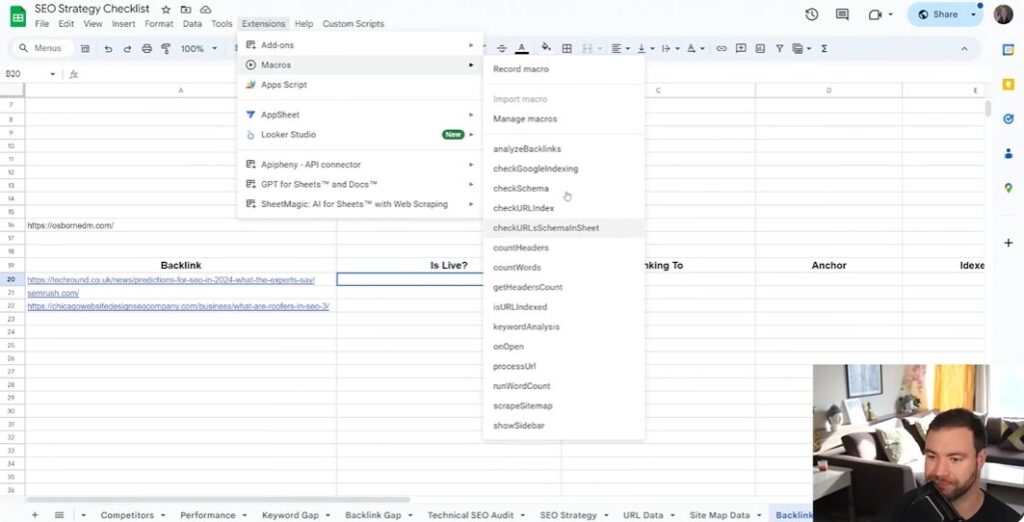
You might wonder how a simple Google Sheet can become a powerful tool for monitoring backlinks. In my experience, it’s all about organization and clarity. The Google Sheets tool I’ve set up is designed to track essential backlink data like live status, link destination, and indexing status. It’s user-friendly and accessible, making it a great choice for anyone looking to stay on top of their backlink game.
Doesn’t that sound easy? This setup should hardly take five minutes of your time.
Once the sheet is ready, it's time to add your URLs. Choose the designated columns for your URLs. For instance, I often use an example from HARO linking to my site, Osborne Digital Marketing, just to showcase the functionality. It's as simple as pasting the URL into the right cell.
With this tool, you will save time and increase productivity. How valuable is that for managing your backlinks? I encourage you to explore its capabilities.
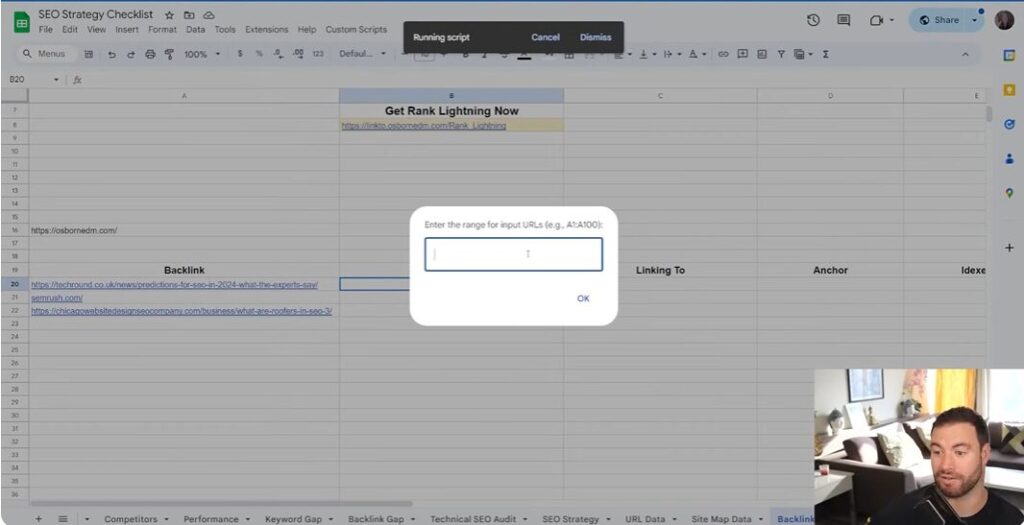
When it comes to SEO, one of the key elements to keep an eye on is backlinks. They're like votes of confidence for your website. But how do we track these essential links without spending a dime? I’m going to share some effective ways to track backlinks for free. Let’s dive in!
Using Google Sheets is one of the best ways to manage your backlinks. I created a free backlink monitoring tool that anyone can use. The first step is to open a new sheet. You want to set up some simple columns:
Once you’ve set that up, delete any pre-existing data and start inputting your URLs. For instance, I often use links from HARO that lead back to my site. This really helps in analyzing their performance.
Did you know you can automate some of your tracking? By heading over to the Extensions section in Google Sheets and selecting Macros, you can run a script that’ll analyze the backlinks. Don’t worry if this sounds complicated; running this script gathers all sorts of valuable information about your links. It tells you if they’re live, the linking URL, and even the indexing status. Pretty neat, huh?
Let’s make it even simpler. You can set up conditional formatting to automatically flag any links that go inactive. This way, if a link stops working, it’ll get highlighted right away. Keeping track of this will save you so much time!
Regularly checking your backlinks is crucial for your SEO strategy. It allows you to ensure your links are functioning properly, which can improve your website’s ranking. So, how often should you check? Setting custom triggers to run the script every two or four weeks can keep you on top of things.
Remember, while tools like my Rank Lightning tool are comprehensive, this free method absolutely deserves your attention. Plus, it’s super user-friendly. If you’re looking to save money while staying organized, this is the way to go.
So, don’t wait. Start tracking your backlinks today and take charge of your SEO journey!
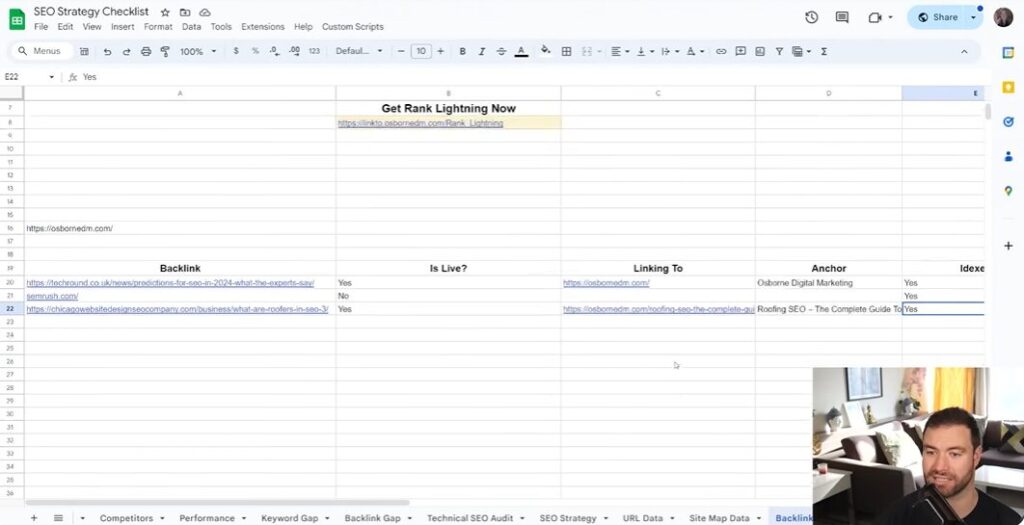
When it comes to analyzing backlink data, we really need to focus on several key elements. Let’s break them down together!
Your dashboard is your control center. It provides a wealth of information at a glance. But what do these metrics really mean?
Knowing these metrics helps us make informed decisions about our backlink strategy.
Have you ever found broken links on your site? It’s frustrating! Regularly checking whether links are live and indexed can save us a lot of trouble later. A handy way to track this is by using tools like Google Sheets. You can set it up to flag any links that aren’t working.
Anchor text deserves its own spotlight. Rhetorically speaking, would you click a link that says “click here”? Or one that describes the linked topic? Exactly. The words used in anchor text can provide context to both users and search engines. They influence how your site is perceived.
I recently analyzed a backlink from HARO that pointed to my site, Osborne Digital Marketing. I opened my Google Sheet, checked if the link was live, and reviewed the anchor text used. This hands-on approach allowed me to visualize my strategy in real-time. It was enlightening to see how each link was performing.
By following these steps, you too can effectively monitor and analyze your backlinks. It’s about making sure that each link is working hard for your site.
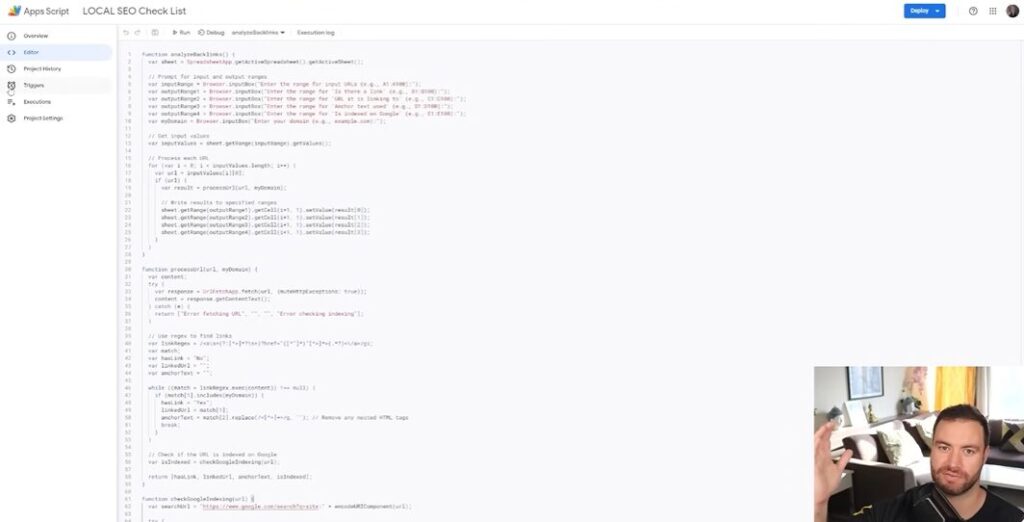
When it comes to monitoring backlinks, time is everything. That's why I believe in automating as much as possible. Setting up triggers in Google Sheets can change the way you track your backlinks.
First, I want to highlight how to set up triggers for your backlinks monitoring. This process can seem tricky, but it’s relatively simple. Here’s a step-by-step breakdown:
Extensions menu, select Apps Script.Triggers icon (clock icon).This could be the key to saving time!
What are the benefits of automating these checks, you ask? Well, think about it: less manual work means fewer chances of error. Automation can run background checks without interrupting your day-to-day tasks. It’s like having a second set of eyes on your backlinks, ensuring everything is ticking along smoothly.
Now that we’ve automated the checks, it’s essential to set a schedule for these data checks. Establish a routine. Weekly or bi-weekly checks create consistency in monitoring. By scheduling regular intervals, you can ensure that your links are still effective and active.
For example, let’s say you set your script to run every two weeks. On Monday mornings, I can sip my coffee while the script checks the status of my backlinks. By the time I’m done with my coffee, I’ll have a clear report: which links are alive, which need attention, and so forth.
Now that’s what I call a smart use of my time!
Incorporating automation into your backlink strategy is not just a method; it’s the modern way to keep your SEO game strong.
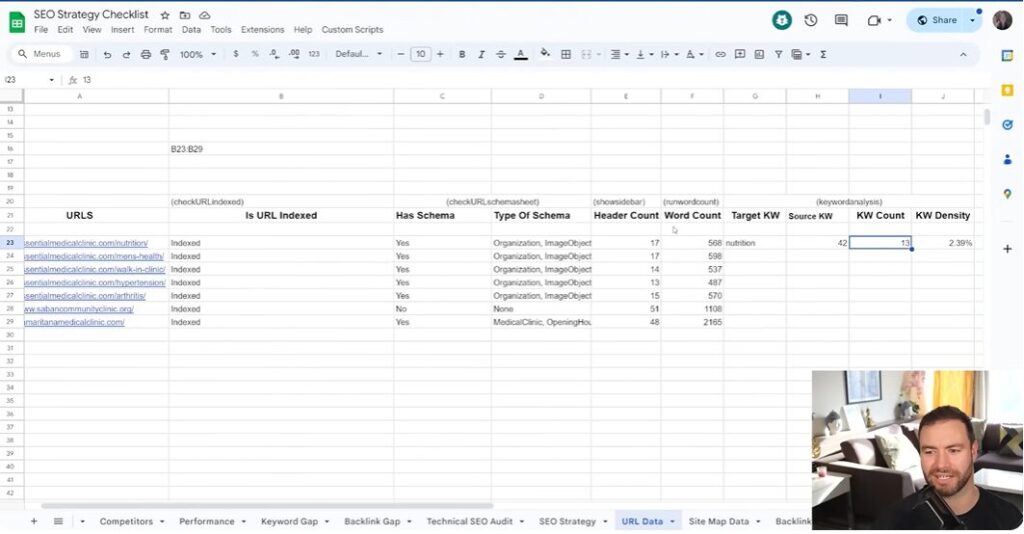
When we dive into the world of backlink tools, there’s a lot to consider. These tools can either make or break your SEO strategy. So, let's talk about their pros and cons. What should we be aware of?
In my exploration of these tools, I found that striking a balance between using the tool and applying personal insight is key. It’s about making informed decisions based on both data and instinct.
Have you experienced any of these advantages or disadvantages with your backlink tools? I’d love to hear your thoughts!
As we wrap up, let’s take a moment to reflect on the incredible benefits of the free backlink monitoring tool we've discussed. It’s not just about tracking links; it’s about ensuring that your SEO strategy is robust and effective. With this tool, you can easily identify live links, monitor their status, and even set automated checks to stay ahead of the game.
Implementing the strategies I've shared will not only streamline your backlink process but also enhance your overall SEO performance. If you’re new to backlink monitoring, start with the basics: paste your URLs, run the analysis, and keep a close eye on your metrics. Remember, consistency is key. Regular monitoring will help you catch inactive links early, allowing for timely adjustments.
I genuinely want to hear from you. How do you plan on using this monitoring tool? Have you faced challenges that you think this tool can resolve? Your experiences are valuable, and sharing them can benefit others in our community.
Please take a moment to comment below. I encourage engagement because it fosters learning for everyone involved. Let’s build a conversation around our experiences and best practices. After all, we’re all here to elevate our SEO strategies together. So, don’t hesitate to hit that comment button and share your insights! The path to mastering backlink monitoring is a shared journey, and I’m excited to see where it leads us.
Utilize this free tool to its fullest potential and watch your digital presence grow!